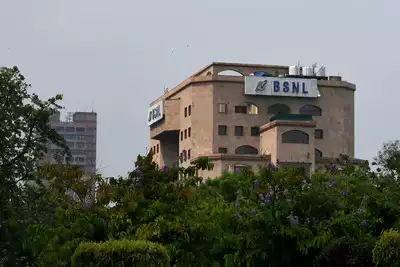

NEW DELHI: Generally perceived a laggard, BSNL is on a roll over the past few months as many consumers shifted to the state-owned telco after recent tariff hikes by private telecom companies,
Numbers released by regulator Trai show that BSNL’s subscriber base has been inching up for the past two months, aided by lower tariffs and possibly ‘soft launch’ of its 4G services.
In July, BSNL gained nearly 3 million new subscribers even as all others, including biggies Reliance Jio, Bharti Airtel and Vodafone Idealost users. Airtel lost 1.7 million users, Voda Idea was down by 1.4 million and Jio was lower by nearly 0.8 million.
In August also BSNL was the only player that gained subscribers as all others declined. BSNL gained 2.5 million new subscribers in the month, while Jio lost 4 million users, Airtel (2.4 million) and Voda Idea (1.9 million).
Overall though, BSNL’s market share still remains much lower to that of its bigger private rivals. While Jio leads the market with a share of 40.5% at August-end this year, Airtel’s market share stands at 33% and Voda Idea at 18%. BSNL’s has a share of 7.8% and it becomes 8% if you add 0.2% share of MTNL, Trai said.
BSNL seems to be gaining now as its tariffs are the lowest in industry, reflected in its Average Revenue Per User (ARPU) score, which is a key metric to measure per consumer contribution. BSNL’s ARPU is understood to be under Rs 100 (estimated at around Rs 90) compared to Airtel’s Rs 211, Jio’s Rs 195 and Voda Idea (Rs 146). This effectively means that PSU telco is charging the least from its consumers.
One of the reasons for the lower tariffs is pretty logical – the company is yet to officially launch high-speed 4G when private operators such as Jio and Airtel have migrated a large part of their users to 5G. Voda Idea is the only private company to be still on 4G, even though it’s now moving swiftly to migrate to 5G after recent fund-raise.
BSNL’s 4G hinges on the success of the govt’s efforts to develop an ‘India stack’ where the network upgradation work has been entrusted to a local consortium that includes TCS and Tejas Networks of Tata group, and govt-owned C-DoT. Govt has refused to give the orders to global giants, such as Nokia, Ericsson and Samsung.







